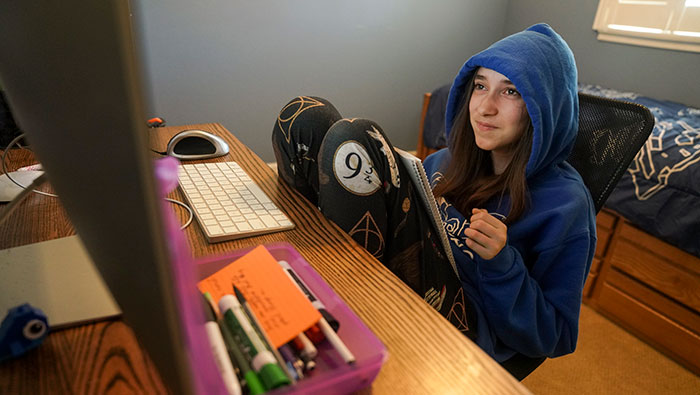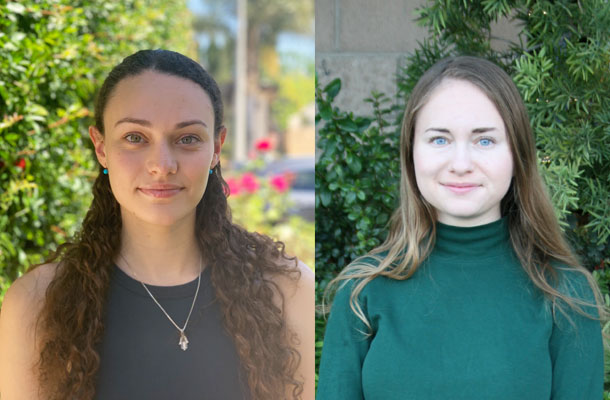
Children and parents alike have faced unique struggles in the past year under quarantine; many caretakers have taken on a new responsibility: teaching their children at home. To lend a hand, two friends on the pre-medical path at UC Davis — Vikki Krysov and Michelle Balshin — launched StudentSphere, a student-sourced, volunteer tutoring program intended to assist students in grades K-12 during the pandemic. The idea was born when Krysov witnessed her older sister, a single parent and an essential worker, struggling to help her daughter with remote schooling. “It was really challenging for me to hear that she was having so much difficulty and that there were plenty of people like that in my community. I really wanted to do something about it,” said Krysov. Now a year in, StudentSphere hosts virtual mentorships between 350 mentees and 500 college mentors from 78 universities nationwide, including UCs and the Ivy League. Mentors assist students with myriad activities, including homework, learning English as a second language, coding, hip-hop dance, playing the guitar and even online gaming. Some mentees simply want to watch a movie with their mentor or to discuss a new episode of a cartoon they enjoy.

“A lot of these students are not seeing their friends at school, so it's natural to feel anxious and to feel a bit lonely,” said Krysov. UC Davis senior Ayane Mochizuki volunteered to tutor a kindergartener and a fourth grader last year because she wanted to help students and families make the transition to online learning. They went on virtual tours to zoos and museums while working on reading and writing skills together. “I found it rewarding when the students were excited about the material we were learning about, or sad to leave the session. Without this program, I would not have met these wonderful students who live miles away,” said Mochizuki. Mentor-mentee pairs are matched based on the mentees’ needs, and additional requests are taken into consideration. Some mentees may indicate that they are struggling in school due to a learning disability or language barrier, in which case they are paired with mentors who have experience with the same disability or speak a foreign language fluently. Many young students are having trouble with remote learning, Balshin said. “They just can't pick up the content the same way that they would have if it was in person one-on-one or even just a few kids per teacher. Many mentors have been spending enough time with them that they've noticed improvement in their children’s studies,” said Balshin. StudentSphere now has mentors in Spain, India, Guam and some European countries. According to Balshin and Krysov, presence on social media platforms such as FaceBook have also helped StudentSphere gain more users. Sujata Bajpai, a parent with two children learning remotely, discovered the program on social media. Her sons are learning French and Spanish with their respective mentors. “My children love to be mentored by these young students. They feel more connected with them than any other tutors,” said Bajpai. “These young mentors are prepared with the content to be taught in the class, and they teach in a way which makes learning fun for kids without any burden.” Despite facing the common challenges of remote learning and adjusting to life amidst a pandemic, students are still making connections and helping each other succeed through a difficult time. “It’s a really rewarding feeling, knowing that the work that we've been putting in has been helping a lot of people and it's been making a difference in their lives,” said Krysov.